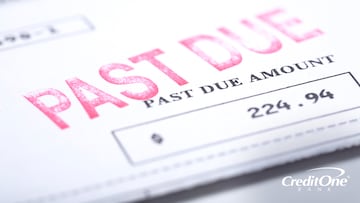Staying on Top of Your Credit Card Payments
July 08, 2025
Making on-time payments is an essential part of a healthy credit score. Learning these tips can help you stay on top of your credit card payments.

Introduction
Modern life requires you to manage both big and little tasks. a lot of big and little tasks alike. There’s a good chance you’re juggling duties between work, health, family, chores, personal interests and other areas, so your to-do list is never quite “done.”
And while some of these tasks can be pushed to tomorrow or even further — and others may be forgotten — making your credit card payments is one thing worth staying on top of.
Unlike being late for an appointment or forgetting to run a small errand, missing a credit card payment can have a negative impact on your credit score. And that’s in addition to fees, interest charges and increased interest rates.
Luckily, there are a lot of ways to make this particular to-do item easier to accomplish.
Tools and Tips for Staying on Top of Credit Card Payments
From account tools to good financial habits, credit card users have a lot of options when it comes to staying on top of their credit card payments. And the popularity of mobile apps has made many of these tips easier than ever.
Set up free account alerts
If you find yourself missing payments, sticky notes and wall calendars may work, but they aren’t the only solution.
Many card issuers offer free account alerts so you can receive timely reminders about upcoming due dates — or other important account updates — directly by phone, text, or email. And of course, you can always set up digital reminders on your favorite to-do list or calendar app.
Take advantage of online bill pay
These days, you can pretty much assume that a card issuer will offer a mobile app and website that allows you to manage your account online or on the go.
Credit card payments processed online and drawn directly from available funds in a linked checking account are quick and safe. Plus, not only can you schedule payments, but you also have the option to make them repeat automatically.
In contrast, paying by physical check may require you to put it in the mail five to seven business days before your due date, to make sure the bank receives and processes it in time.
Choose a due date that works for you
Some missed payments aren’t about forgetting as much as they are about unfortunate timing. Maybe payday just never seems to line up right, or other recurring bills all land around the same time.
Nowadays, most credit card companies allow customers to choose a specific due date, so you can pick one that better fits your schedule.
Pay the full amount due each month
An important part of managing your credit card payments is managing your credit card spending. By only spending what you can pay off in full at the end of the statement cycle, you won’t overextend yourself financially.
Save your proof of payment
Now, let’s move from “before the bill is due” to “after the bill has been paid.”
Mistakes and technical errors can happen, so it’s a good idea to save your proof of payment. This can be the confirmation email, digital statement or paper statement, but it’s good to have proof that you made your payment on time in case you notice a mistaken late fee down the line.
Bottom Line
Life can get busy, and things slip between the cracks. That’s alright for things you can finish later. But missing credit card payments can seriously affect your credit.
Fortunately, you have a lot of tools at your disposal that can help you stay on top of your credit card payments. By using some or all of them, that’s one less thing to worry about in your busy life.
If you’re looking for a credit card with modern account management features, you can see if you pre-qualify for one from Credit One Bank. It takes less than a minute and checking doesn’t affect your credit score.



